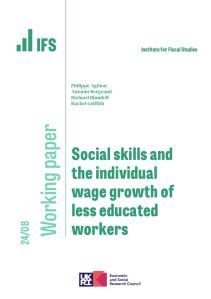The government’s policy to pay schools to get more pupils studying maths is misguided, argues Luke Sibieta – why not raise sixth-form funding instead?
In Wednesday’s Budget, the Chancellor announced various measures aimed at expanding the teaching of maths in schools and colleges. One of the most eye-catching announcements was a commitment to pay “a £600 maths premium for schools [and colleges], for every additional pupil who takes A-level or core maths.”
Precise details about how this policy will work are not yet available. But, as far as I understand it, the intention is to pay schools and colleges £600 for every additional pupil who takes A-level or core maths over and above some baseline (probably the number in the previous year). This represents a lot less than paying £600 for every pupil taking maths.
The proposed formulation could also end up making the funding system horribly complicated. Paying for an additional five pupils in year one would be simple enough, but it seems unlikely that funding would drop if numbers taking maths dropped the following year as that could create volatility in funding levels. If the funding stayed that could create a ratchet effect where schools and colleges see their funding rise when maths numbers go up, but don’t see a fall when they go down.
This is an extract from a longer piece published by Schools Week. For the full article (free to view) please see here.








